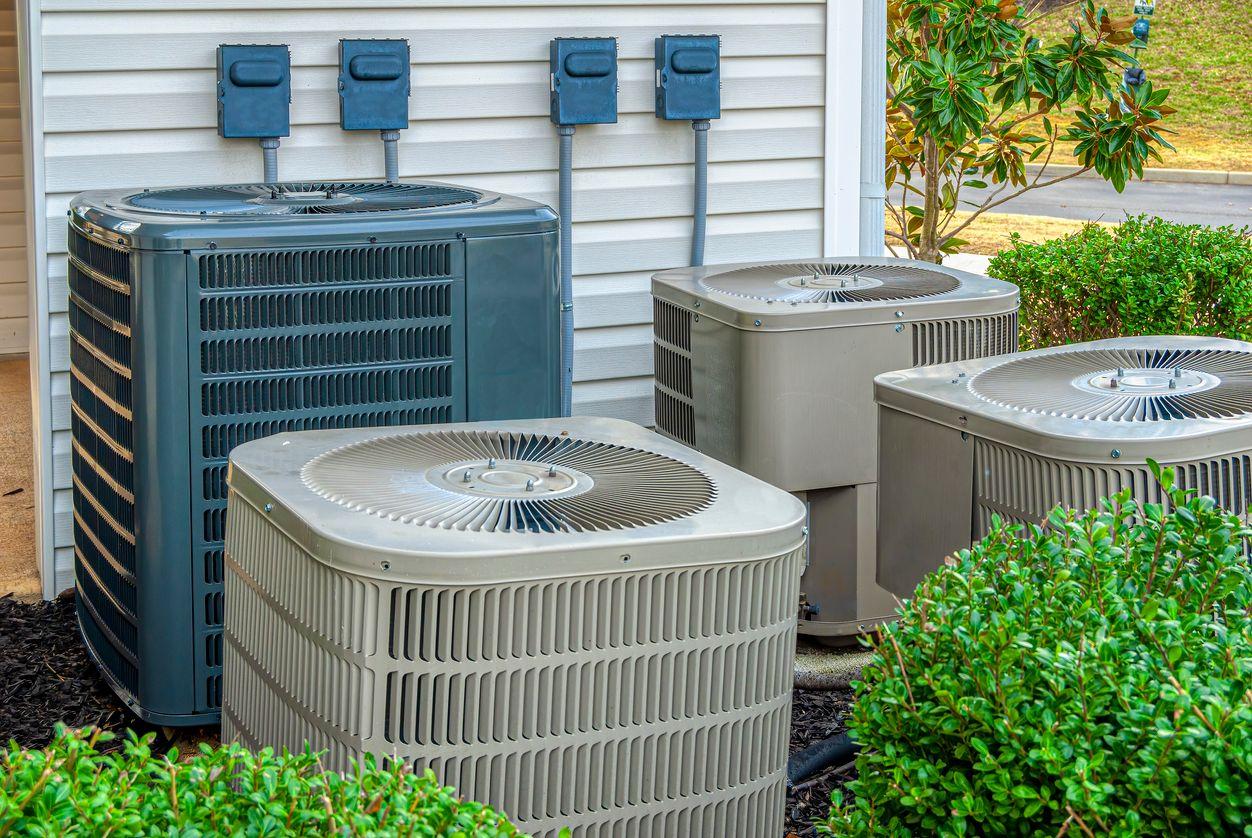Blown AC Fuse: Causes and Fixes

When temperatures spike on the hottest days of the year, you seek refuge inside your air-conditioned home. Unfortunately, your air conditioner's fuse can blow due to internal AC issues or electrical problems, leading to a complete system breakdown that compromises your family's comfort and safety.
Keep reading to learn the role of an AC fuse, the common causes of a blown AC fuse, and how to fix the issue.
What Is the Job of an AC Fuse?
An air conditioning fuse is an electrical safety device that protects the system's electrical circuit, other electrical components, and the air conditioner and its parts from damage caused by short circuits and electrical overloads. The fuse is typically located on the unit's control board.
When the electrical current exceeds safe levels due to a malfunction, fault, or power surge, the fuse acts as a barrier, breaking the circuit and preventing further flow of electricity. By doing so, it prevents potential damage to sensitive components like the compressor, blower fan, and control circuitry. Fuses play a vital role in maintaining the overall integrity of the AC system, ensuring its safe and reliable operation while also safeguarding against potential fire hazards that could arise from electrical failures.
If the AC fuse blows, your air conditioner won't turn on. You may hear a humming noise as the system attempts to draw power.
Common Causes of a Blown AC Fuse
Some of the most common causes of a blown air conditioning fuse include:
Faulty Wiring
Faulty wiring can commonly cause a short circuit, leading to a blown AC fuse. Poorly installed or damaged wiring can also result in short circuits and blown fuses.
“Replacing fuse after fuse will not correct the issue,” said Steve Stewart, owner of Southern Comfort Mechanical in Lewisville, TX. “It will cause more damage. Tracking down a short in an AC system typically is a drawn-out process to find the wire and isolate the area of the short, potentially changing out the defective wire.”
Component Failures
Faulty capacitors, relays, or other components can contribute to blown fuses. A malfunctioning compressor, for example, can draw excessive current, causing the fuse to blow.
Issues with the Breaker Box
A faulty of short-circuiting breaker box can cause blow fuses. Contact an experienced HVAC technician to inspect the circuit breaker for any potential issues.
Electrical Overload
An electrical overload can occur when the air conditioner draws more current than the fuse's capacity. The protects the air conditioning system from potential damage. Common causes of an electrical overload include a failing component, a power surge caused by a lightning strike or voltage fluctuations, and several high-powered devices sharing the same circuit. An AC should ideally have its own dedicated electrical circuit to ensure a consistent and reliable power supply, preventing overloads and disruptions to other devices on shared circuits.
Refrigerant Leaks
Air conditioning systems require an adequate amount of refrigerant to work properly and efficiently. A refrigerant leak, depending on its severity, causes the unit to work harder to reach the set temperature on your thermostat, potentially leading to a blown fuse. Contact an HVAC technician to inspect the refrigerant level and recharge it if necessary.
Clogged Air Filters
A clogged air filter restricts airflow to the system, also making it work longer and harder, potentially leading to a blown air conditioner fuse. Change your HVAC air filter every 2-3 months to ensure proper airflow.
Loose Electrical Components
Your air conditioning system's electrical connections can loosen over time, resulting in a tripped circuit breaker and blown fuse. During an HVAC maintenance appointment, your technician will tighten electrical connections to ensure proper operation.
Cost to Fix a Blown AC Fuse
Depending on the severity of the issue, the cost to replace an air conditioner fuse, including installation, ranges from $100 to $300 or more.
“The cost can vary widely based on factors like your location, the technician's expertise, and the specific issue causing the fuse to blow,” said Nicholas Martin, director of marketing at Happy Hiller Plumbing, Heating, Cooling, and Electrical. “The cost might also include diagnosing the underlying issue and addressing any necessary repairs.”
Is Replacing an AC Fuse a DIY Job?
Unless you're familiar with electrical work and HVAC systems, replacing an air conditioning fuse is a job better left to the professionals. A licensed electrical or certified HVAC technician can identify the root cause of the issue to prevent a blown fuse in the future.
Tampering with electrical components can be dangerous and could void your warranty if issues develop.
“While a basic fuse replacement is DIY-friendly, I'd recommend calling in a professional to diagnose the root issue,” said Kevin Price, with A/C and Refrigeration in Tempe, AZ.